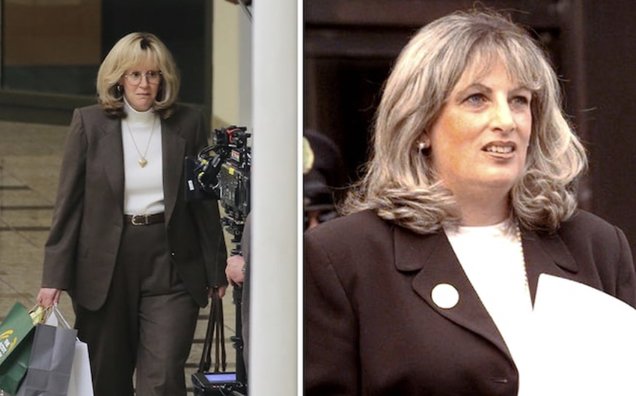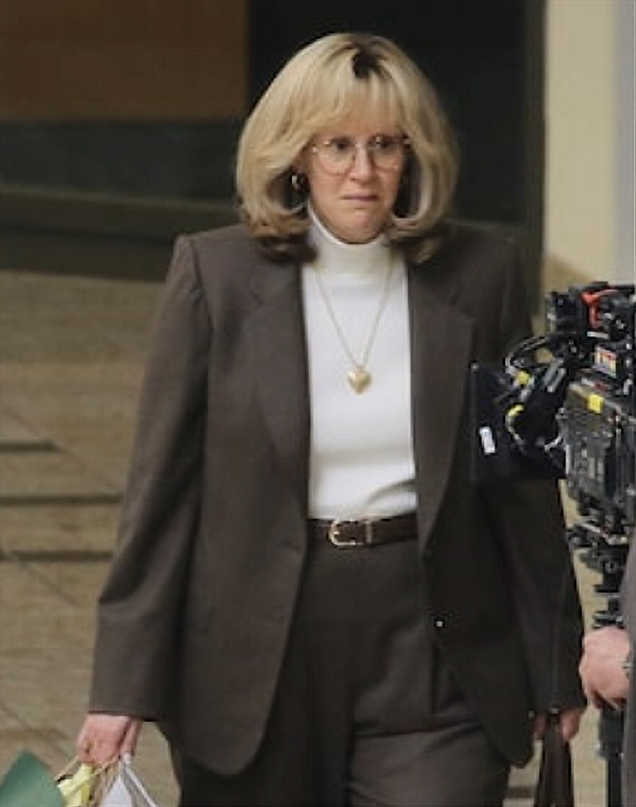In order to convincingly play the fiendish Linda Tripp in American Crime Story: Impeachment (FX, 9.7), Sarah Paulson gained 30 pounds and wore a modest fat suit. (She also donned a blonde wig and wore prosthetic teeth.) Photos show that Paulson and the show’s makeup specialist did it right. She looks a lot like Tripp (who passed last year from cancer) did in the late ’90s.
And that’s not cool, according to certain complainers. The producers should have hired an actual fat actress instead of Paulson because fat suits are “incredibly anti-fat and perpetuate anti-fat bias,” as one person tweeted. Former Buzzfeed journalist Kristin Chirico wrote that “this could have been a fat actor. This could have been their big breakout role. This could have been their Golden Globe or their Emmy nod. This could have been their paid off student loans or their first house. Instead it’s Sarah Paulson in a fat suit.”
And so Paulson, not wanting to seem dismissive of or disrespectful towards persons of weight, is saying that she’s sorry for the realism, but not entirely. Half sorry, half proud. She regrets “not thinking about it more fully,” whatever that means. She’s also said that “I wouldn’t make the same choice going forward.” Meaning what? That she won’t wear a fat suit again?

Paulson quoted on 8.26 by L.A. Times interviewer Yvonne Villarreal: “There’s a lot of controversy around actors and fat suits, and I think that controversy is a legitimate one. I think fat phobia is real. I think to pretend otherwise causes further harm. And it is a very important conversation to be had. But that entire responsibility I don’t think falls on the actor for choosing to do something that is arguably — and I’m talking about from the inside out — the challenge of a lifetime.
“I do think to imagine that the only thing any actor called upon to play this part would have to offer is their physical self is a real reduction of the offering the actor has to make. I would like to believe that there is something in my being that makes me right to play this part. And that the magic of hair and makeup departments and costumers and cinematographers that has been part of moviemaking, and suspension of belief, since the invention of cinema. Was I supposed to say no [to the part]? This is the question.
“I think the thing I think about the most is that I regret not thinking about it more fully. And that is an important thing for me to think about and reflect on. I also know it’s a privileged place to be sitting and thinking about it and reflecting on it, having already gotten to do it, and having had an opportunity that someone else didn’t have. You can only learn what you learn when you learn it. Should I have known? Abso-fucking-lutely. But I do now. And I wouldn’t make the same choice going forward.”














